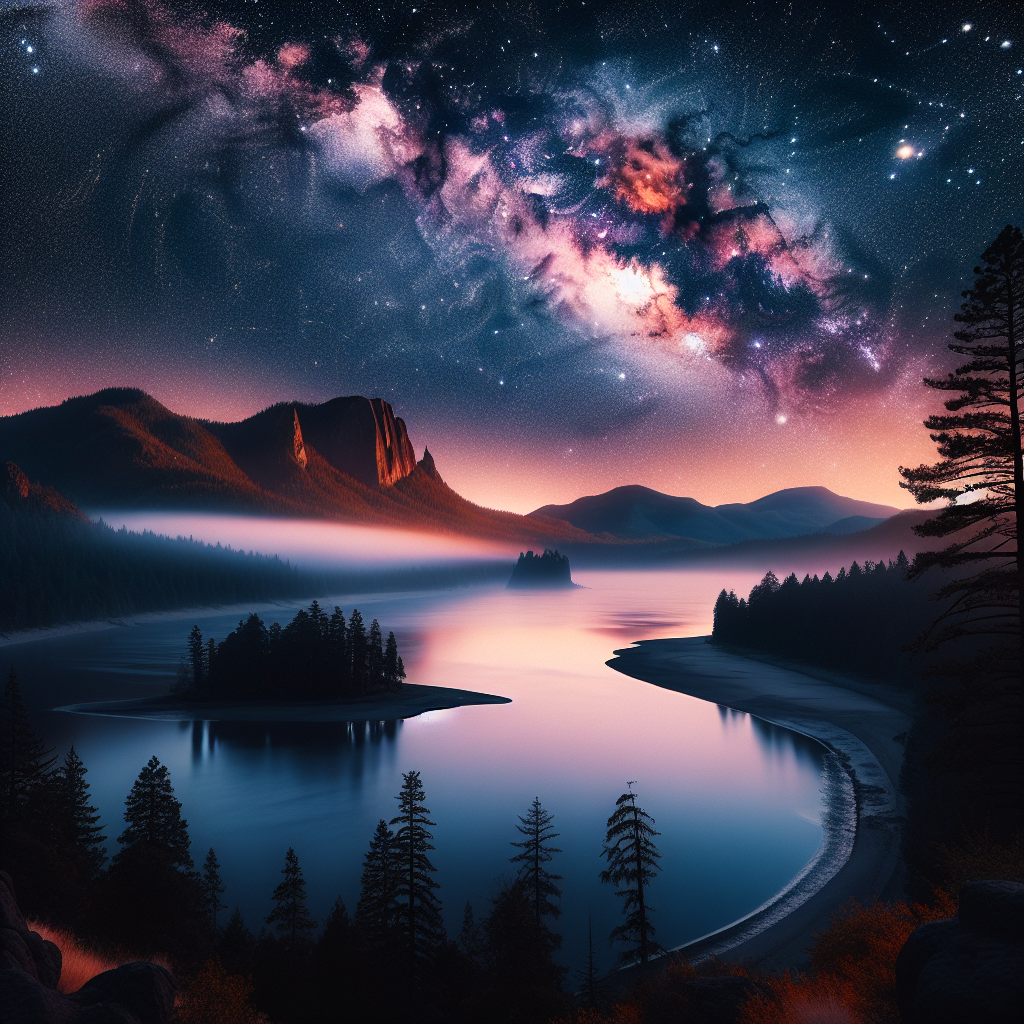Oregon’s Dark Sky Preserves: Stargazing Spots to See the Milky Way
Oregonians know and love how beautifully wild this corner of the Pacific Northwest can be, with landscapes ranging from fog-kissed coastal cliffs to multi-hued desert plains. Few sights match the grandeur of our night skies, where a tapestry of twinkling stars and the dusty swirls of the Milky Way are frequently visible due to the state’s commitment to preserving dark sky spaces. Here’s an insider’s peek into our most treasured locations.1. Pine Mountain Observatory
Perched atop the basalt landscapes of Pine Mountain, this observatory near Bend serves as an astronomical research facility for the University of Oregon in the daytime. At night, amateur stargazers flock to the observatory for the guided viewing times hosted by staff during summer weekends. Don’t forget a picnic and some binoculars to make the most of your trip!2. Alvord Desert
This expansive, remote desert located to the southeast is as desolate as it is beautiful. Famous for its hot springs and monolithic Steens Mountain, the Alvord Desert is also an astronomer’s paradise due to its lack of light pollution. Bring a cozy blanket to wrap up in, because it can get cold when the sun dips down!3. Ochoco National Forest
Full of rolling hills and dark canopies, Ochoco seems almost fairytale-like by day. However, its true magic shines at night, when you can cradle a warm beverage, lean against an old tree, and behold the universe in its full grandeur. Be sure to visit the Walton Lake Campground – it’s a local favorite for secluded stargazing.

4. Cottonwood Canyon State Park
Thought to be Oregon’s second-largest state park, Cottonwood Canyon offers plenty of sky-watching opportunities. A local tip is to take advantage of the camping spots by the John Day River, where crickets compose a soundtrack to your stargazing.5. Maupin
Known for being a small fishing town and the number of water sports it offers, Maupin is a hidden gem when it comes to stargazing. Plan your trip around a new moon for the best views and be ready to see the Milky Way in all its unfathomable enormity.6. Sunriver Observatory
Make a worthwhile detour to Sunriver while driving down the Cascade Lakes National Scenic Byway. This observatory is child-friendly, making it perfect for introducing young minds to the wonders of the cosmos. They offer nightly viewing sessions, with a wide array of telescopes sure to wow both adults and children.7. Hart Mountain National Antelope Refuge
Oregon’s high desert country holds a secret – one of the best stargazing spots in the state. By day, the Refuge is alive with pronghorn antelope bounding across the arid landscape, but by night it serves as a theater to a starry performance. It’s a must-visit for any avid stargazer.8. Smith Rock State Park
Red cliffs, a river, hiking trails, and most importantly at night, a dark sky filled with stars to marvel at; this park located in central Oregon truly has it all. It is a perfect blend of terrestrial and celestial beauty. Stick around after sunset to see the well-defined Milky Way stretch across the heavens.9. Lost Lake Resort and Campground
This much-loved Hood River campground not only provides dreamy views of Mount Hood but its location promises minimal light pollution and clear, starlit nights. Reserve a campsite months in advance to get a lakeside spot during peak stargazing seasons, and don’t forget your sweaters and marshmallows!10. Powell Butte Nature Park
Finally, if you’re an urban dweller craving celestial sights, make your way to Powell Butte in southeast Portland. True, the city lights may dim the view somewhat, but on a clear night, the park’s lofty elevation permits an impressive display of constellations and shooting stars.Here in Oregon, the sky’s not just the limit; it’s a doorway to the infinite wonders of the universe. It’s our shared heritage and pleasure. So pack your stargazing gear, prepare some hot cocoa and warm blankets, and step outside into the night to marvel at the cosmic ballet that unfolds above us every evening.
